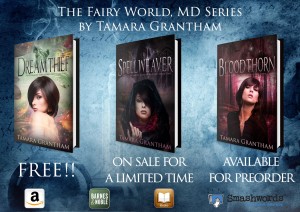I’m writing this post to confront a misconception.
Traditionally published books are better than independently published books.
Of course, what exactly does “better” mean? Does it mean better editing? Does it mean less typos, better flow, less cliches, stronger characters, and more creative stories? I know this subject tends to be a bit subjective, and all I can do is share my own experience, so here goes…
I’m not usually one to be negative about books, but sometimes it’s inevitable. Last week, my mom, who’s a teacher, called and told me that she’d talked with the school librarian about my Fairy World MD series. The librarian mentioned there was a lady who lived in town who was also an author–and not a just-starting-out author like me–but a NY Times-bestselling author published with one of the big 5 publishers. This was crazy cool because there are about 16,000 people living in my small Texas hometown, and not a place I would expect to find a hugely successful author. Mom told me that the author writes fantasy romance, mainly Highland stuff with dragons and shifters and the like. So I bought one of her books. I admit I don’t usually read a lot of straight-up romance. I tend to lean more toward fantasy, but since she’s from my hometown, I gave it a try.
I was disappointed.
Maybe it was because I still believe the lie that trad books are better, but if I put this book through my previously mentioned guidelines to a good book, let’s see how it would do:
The typos bothered me. In several instances I found sentences ending with periods and commas. Like this., There were missing words, misuse of the words “to, too”and several other common typos. Usually I can look past typos, but the truth is, typos just make a book look bad, even really good books look bad if they’re riddled with typos. They’re easy for novice readers to spot, and worst of all, they take you out of the world the author has tried so hard to create and brought you back to real life. Yuck.
Looking past the typos, I actually enjoyed the story and world building. The characters disappointed me, but maybe that’s because I don’t read a lot of romance, nor do I understand the compulsion to sleep with a person you’ve just met and not use birth control or protection of any kind. (Does this happen a lot in romance?)
Conversely, I have been reading quite a bit of books written by indie authors. Darts, Rings, and Swords by Benjamin K Hewett were such fun, imaginative reads. And so was Shannon A. Thompson’s Timely Death trilogy.
What am I missing? Why were these indie books so much…SO MUCH… better? I also admit to being a huge fan of many traditionally published authors such as Jim Butcher, JK Rowling, and Ilona Andrews to name a few.
In the end, I realize there are very good indie books out there–but there are also very bad ones. There are very good traditionally published books out there–and there are also some crappy ones. What I don’t understand is why there is still such a stigma toward indie books, as just the other day I was on a blog who refused to accept self-pubbed books for review.
My hope is for all authors (myself included) to make their writing the best they can. It’s very easy to self-publish these days, and so the allure of putting up a book for sale before it’s actually ready can be a huge temptation, but can be detrimental in the end. Authors, take workshops, read books on writing, work with editors and beta readers, read and write everyday, and please don’t publish something just because you’ve written the last word.
And that, my friends, is my last word.
Don’t forget! This is the last week you can get Spellweaver on sale, so don’t miss out! Bloodthorn releases in one week on April 25th!! You can click here to view my Amazon page and see all my books.

This is such an awesome post, Tamara. I feel the same way! Thanks for spotlighting a common misconception in the publishing world. 🙂